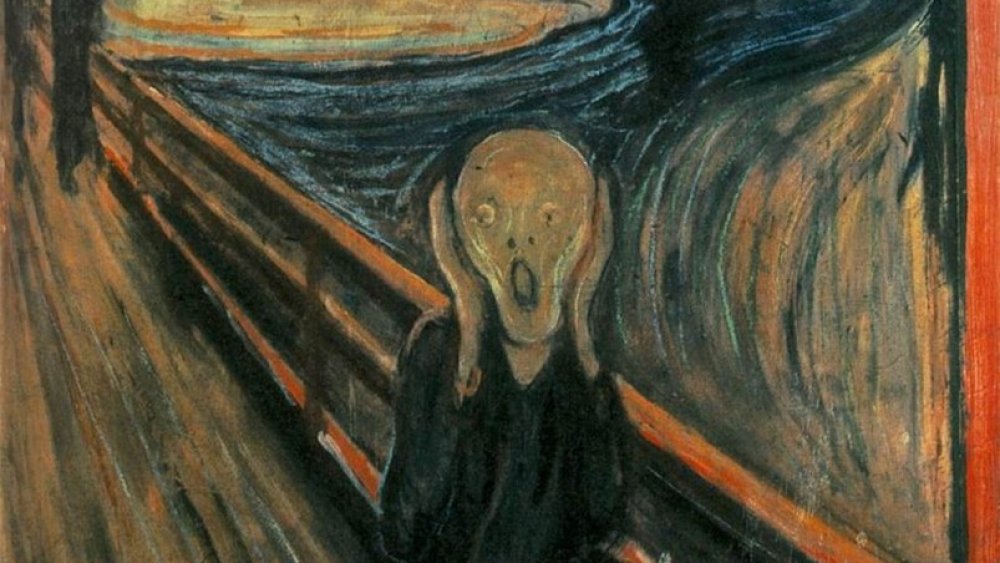The Reason People Are Attracted To Tragedy
The saying "misery loves company" is ironically not a depressing tale of unrequited love. Many people seem to love heartbreak on some level, at least when it happens to other people. They flock to it like a moth to a flame, probably so they can gawk at the moth burning to death in said flame because that makes for a better, sadder tragedy. News outlets, which often double as teardrop merchants, have capitalized on this forever. Per a 1989 article by the Chicago Tribune, Eric Pooley gave away the game in a piece for New York Magazine titled "Grins, Gore and Videotape," which articulated the media mantra: "If it bleeds, it leads."
Obviously, news outlets are just one example. Heck, it would probably be hypocritical not to acknowledge that your bleeding heart arguably forms part of the lifeblood of Grunge. Whether it's the tragic real-life story of Andre the Giant, the heartwrenching history of "the Elephant Man" Joseph Merrick or even the tragic life of the world's biggest moth, you won't find a drought of tear-jerking titles. Down the line, you may even see the extremely sad and tragic tragedy of the mime who never spoke up.
But why? How is it that tales of overwhelming (or not-so-overwhelming) woe seem to hijack the human brain so reliably? Well, it turns out that you might be hardwired to accentuate the negative side of life, which can impact people in positive ways under certain circumstances.
Tragedy hurts so good
Generally speaking, humans have what's known as a negativity bias or positive-negative asymmetry. Very Well Mind defines it as "our tendency not only to register negative stimuli more readily but also to dwell on these events." Praise fades but insults linger in your slighted brain. Traumatic experiences are more cemented in your memories than positive ones, and people respond more strongly to negative events. Scientists believe that the brain may have evolved to focus on bad as a self-defense mechanism. That makes sense when it comes to immediate threats. After all, you don't want to ignore the ominous growling behind you or the silhouette or agree to go knife shopping with O.J. Simpson just because there's a chance things might end well.
But what about tragic events that people witness from a distance, like news reports from other places and the heartache of strangers? Is that simply a side-effect of self-protection? Clinical psychologist Dr. John Mayer told NBC, "Witnessing violence and destruction, whether it is in a novel, a movie, on TV or a real life scene playing out in front of us in real time, gives us the opportunity to confront our fears of death, pain, despair, degradation and annihilation while still feeling some level of safety." This isn't a new idea. The Internet Encyclopedia of Philosophy points out that the 4th-century BC philosopher Aristotle made a similar claim about tragic plays in the Poetics, calling them a source of emotional "catharsis."

